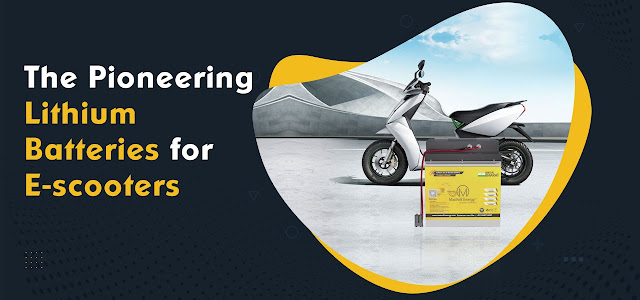How to Prevent a Li-Ion Battery Explosion in an Electric Vehicle
Lithium-ion batteries power mobile phones, laptops, computers, hoverboards, and electronic vehicles. Generally, lithium-ion batteries are safe, but incorrect use can lead to fire or explosions.
Explosions are frequently caused by the "thermal runaway" phenomenon, in which the temperature of the battery rises too quickly for heat to disperse. It is vital to fully comprehend how this failure mechanism happens and how to prevent it.
As previously stated, while lithium batteries are generally safe, they can cause injury if they have design flaws, are built of low-quality materials, are wrongly assembled, are used or recharged inappropriately, or are damaged.
Today, lithium-ion batteries are the backbone of every technology that requires batteries. Li-ion batteries power a range of applications, from smartphones to electric cars. It is owing to the technology's high energy density and efficiency.
However, there is a dark side to this otherwise happy tale. If any flaws in the manufacturing or safety inspections are missed, the battery's high energy bank may catch fire and can explode in the worst-case scenario. Li-ion battery technology is responsible for some of the most terrible industrial accidents.
Why do lithium-ion batteries ignite or explode?
First, it's critical to comprehend the causes of li-ion battery fires and explosions. In reality, a lithium-ion battery electrochemically reacts to store and release its electrical energy. Lithium ions migrate between electrodes in batteries containing an electric current. The electrodes are immersed in an electrolyte, a liquid medium, to effect this. Organic solvents and lithium salt make up the electrolyte. Organic solvents make Li-ion batteries prone to fire. Also, the presence of oxygen advances the fire. Notably, oxygen is present on the battery's positively charged cathode electrode. The battery may release oxygen from the cathode when it is subjected to certain conditions, such as internal shorts, extreme heat, and many more. In brief, lithium-ion batteries have the potential to both start a fire and maintain it on their own. Moreover, the flammable electrolyte and numerous flammable/toxic gases, including hydrogen (H2), methane (CH4), carbon monoxide (CO), and hydrofluoric acid (HF), may escape the Li-ion battery during intense thermal accidents. These combustible gases explode and start fires when they are released.
The non-technical causes
Lithium-ion batteries catch fire because they are so sensitive to high temperatures and even deteriorate more from heat than regular batteries. They have a considerable internal fire risk. Additionally, there is a chance that the batteries could overheat and explode as a result of external pressure.
When the current spikes, the battery overheats. Lithium-ion cells also self-discharge since the batteries lose their stored charge if the electrodes or external circuits are not connected. Temperatures can grow and increase self-discharge, potentially leading to a Thermal Runaway. During a thermal runaway, the heat generated by a failing cell may spread to the next cell, rendering it thermally unstable. As a result, a chain reaction can destroy the entire pack in seconds.
There could be several causes for battery problems and, eventually, fires. Low-quality components and manufacturing flaws are the causes of battery failure. Leaving the batteries exposed to heat sources is particularly risky because it may result in an explosion. Another cause could be battery penetration, which results in a short circuit and, finally, a fire. Furthermore, excessive charging or discharging destroys the pack. The use of non-recommended or poorly insulated chargers has the same effect.
Let us now look at ways to prevent explosions in electric vehicles.
Thermal management in an EV battery is critical since it must operate in extreme cold or heat. Protect your vehicle's batteries from high temperatures.
Park your electric vehicle in the shade or plug it in so that its thermal management system only uses grid electricity and maintains a constant range of temperatures during operation.
For specific battery types, use official and original chargers.
Some batteries catch fire quickly. You might need to charge or park your car far from anything flammable.
Never swap out or use a non-original charger.
Store batteries at a normal temperature.
Please wait an hour before charging the batteries after usage. Allow them to cool down for a while before charging them.
Inform your dealer if the battery case is damaged or has been impacted by water.
If the lithium-ion battery starts to overheat while being charged, try relocating the device away from combustible materials and switching off the power source.
Check your vehicle's batteries regularly. Unlike in petrol engines, battery levels may deplete if an electric automobile is stored and not used for an extended period.
Avoid leaving batteries fully charged or completely depleted. Keep it between 20% and 80%.
Do not leave your vehicle idle for long periods.
Make frequent, short trips in your automobile.
So we've covered the causes of lithium-ion battery explosions and how to avoid them. If you want to learn more about it or buy lithium-ion batteries, please contact Maxvolt Energy the best lithium battery manufacturer in India.
.jpg)
.jpg)


Comments
Post a Comment